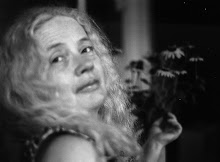In the Sweet Bye and Bye
Young Coney drank extract of vanilla on Saturday nights. Sometimes he’d sneak into the basement of the Baptist Church and play the piano. He’d play “In the Sweet Bye and Bye” until he fell into the keyboard, sobbing, overcome by the beauty and pathos of his performance.
Coney was born in Shaftesbury, Vermont, in 1922. He lived with his widowed mother who supplemented her social security checks by raising turtles for pet stores in Bennington and Albany. She got a nickel for a plain turtle and ten cents if she painted a picture of the Statue of Liberty on the turtle’s back. Coney’s father, Old Coney, died in 1925. He fell asleep on the railway tracks one night, on his way home from the County Line Tavern, and got run over by the 4 a.m. freight train to Schenectady. Coney remembered him only as the smell of whiskey and a stubbled face. But he used to carve wooden toys for Coney. He still had them. One was a clown with jointed arms and legs, on the end of a stick, that could be made to dance and caper, or stagger, as Coney did, on his way up Main Street.
He’d played “In the Sweet Bye and Bye” 11 times on the Baptist Sunday School piano, each time a little louder, as he warmed to the subject, dedicating each rendition to a recent member of the Assembly of the Dearly Departed Ones. He’d worked his way down to Gladiola Paddock's husband, who got caught in a harrowing machine last Spring.
“Harrowing? That can’t be right. But it was harrowing! In the sweet bye and bye...That machine with the long tail that breaks up clods. George! George Paddock, that was his name.”
“In the sweet bye and bye,” Coney bellowed, smashing out graduated thirds on the yellow, out-of-tune keys, when the light snapped on and he found himself face to face with Roseanne Parker, the minister’s wife. Her hair was done up on wire brush rollers and she was wearing a plaid bathrobe that almost blinded him.
“You get out of here Coney, people are trying to sleep.”
“Yes Maam.” Coney left, grabbing tightly to the air on either side of him, to steady himself. “Sorry Maam. I was just leavin.’” She watched him stumble out the door, rigid with disapproval.
The cool night air cleared Coney’s head a little. All those renditions of “In the Sweet By and Bye” was bringing back his few, dim memories of his father. He pretended he was the wooden clown his father had carved, as he walked up the hill to his mother’s little house on the edge of the cemetery. He raised each knee up as high as he could get it and flapped his arms at the elbows, giggling, “George Paddock got harrowed and it was harrowing. Yep. It was just harrowing!” Coney climbed up on the low stone wall that ran past the Mattison’s house. That was when I saw him, still doing his clown imitation. I was eight years old, and my secret hobby was slipping out the front door, long after my grandmother and the other respectable citizens of Shaftesbury, had been asleep for hours. I liked to walk through the silent streets, noticing how the lilacs looked by moonlight, and pretending I had to dodge ghosts who had escaped from the cemetery and were floating through the air like big dandelion puffs. I guess I was just about as weird as Coney, even though I hadn’t had nearly so many years to refine and amplify my peculiarities. I slipped behind a bush and watched Coney, who now had his clown singing grand opera. “O Soap Dish Mio/Your name is Cleo,” Coney warbled.
I knew he was too drunk to notice me, so I climbed up on the wall behind him and pretended we were playing follow the leader. When Coney got to his house, he didn’t make it all the way to the front door. He stopped to rest by the flowering quince bush where, to his mother’s deep humiliation, he still was the following morning. My grandmother walked me to school the next day, ordering me to avert my eyes when we went by Coney’s house. She did not want me to see such a spectacle, because my father, after all, had been Irish trash, and it might give me ideas. I sneaked a look at Coney who was lying on his back, snoring, with his mouth open. I could not openly express my loyalty to him, so I started doing his clown walk, singing, “Oh Soap Dish Mio/Your name is Cleo.”
“Now you cut that out! Take my hand and walk like a young lady who is on her way to school.”
“Yes Maam.”
Everyone needs a secret life, and will construct one out of whatever materials are available. But I didn't know that back then. I thought me and Coney were the only interesting people amongst acres of Baptists and Methodists who lived their lives as if God were watching them every single minute, as the Reverend Parker claimed He was. I planned to enjoy my childhood and repent later on, after I got too old to do anything else.
Saturday, October 11, 2008
Subscribe to:
Post Comments (Atom)


No comments:
Post a Comment